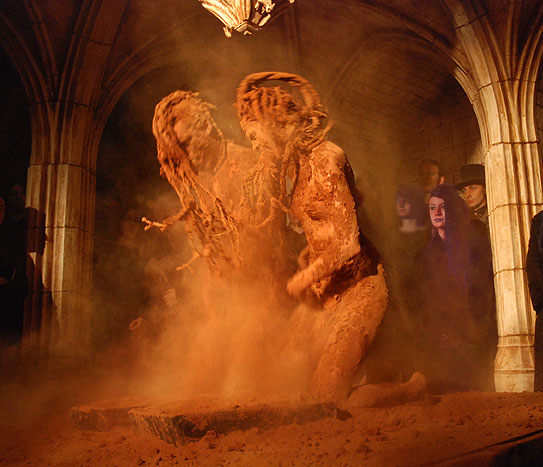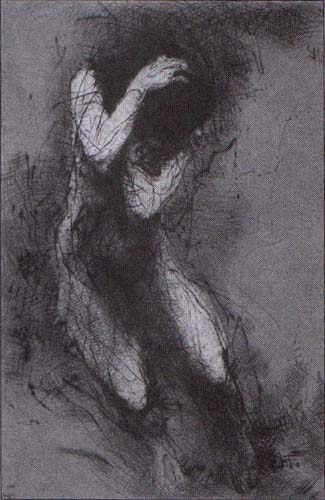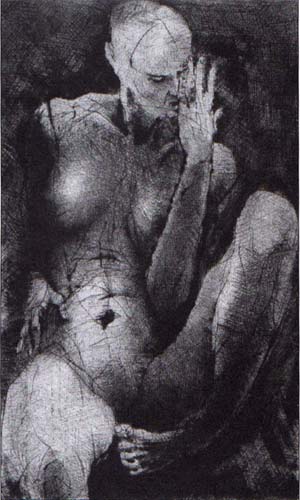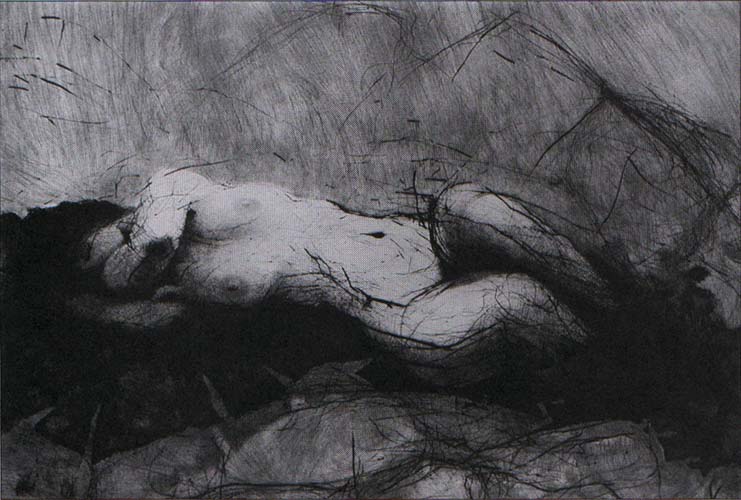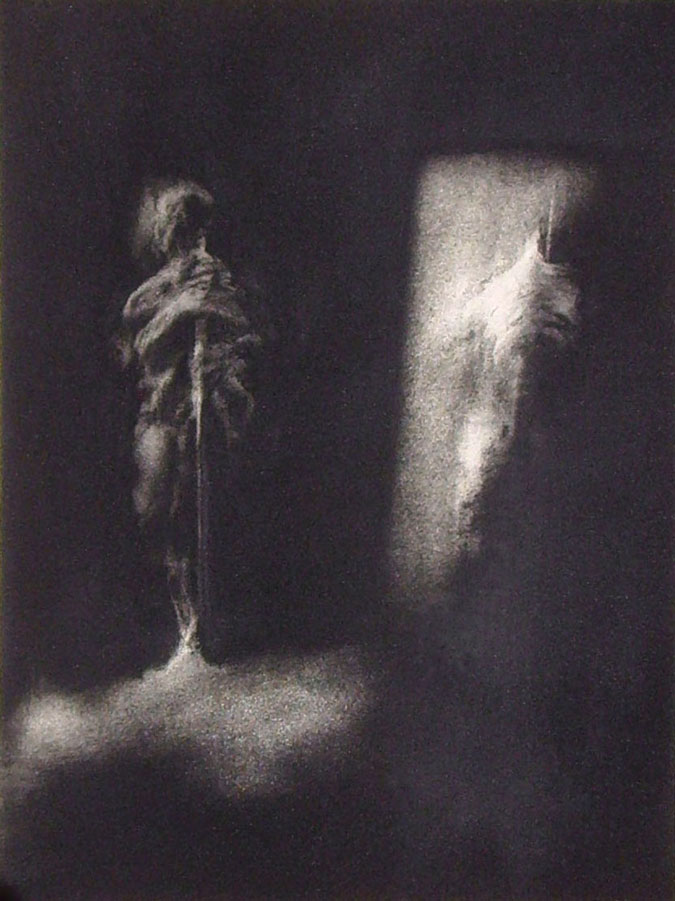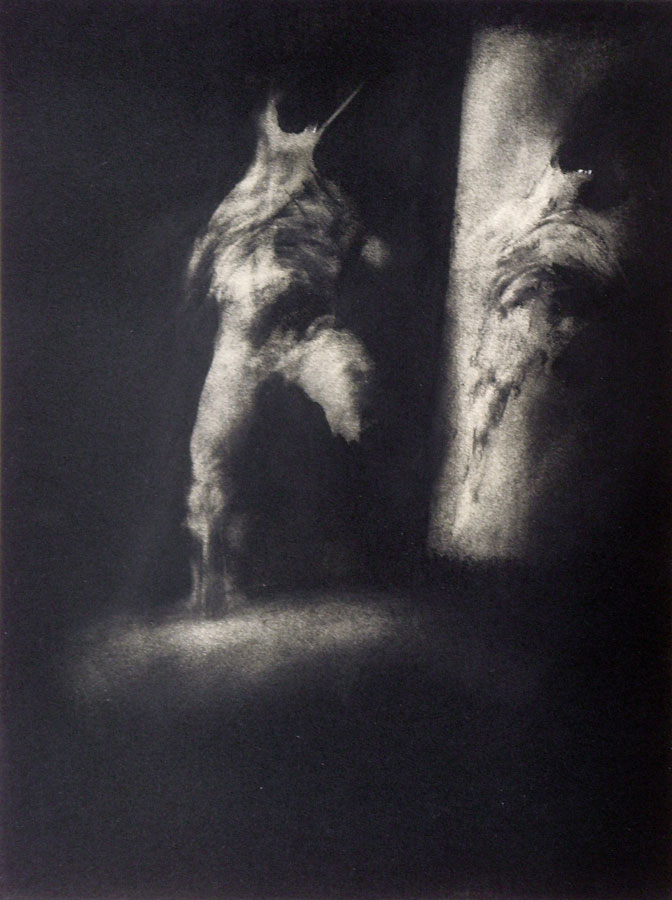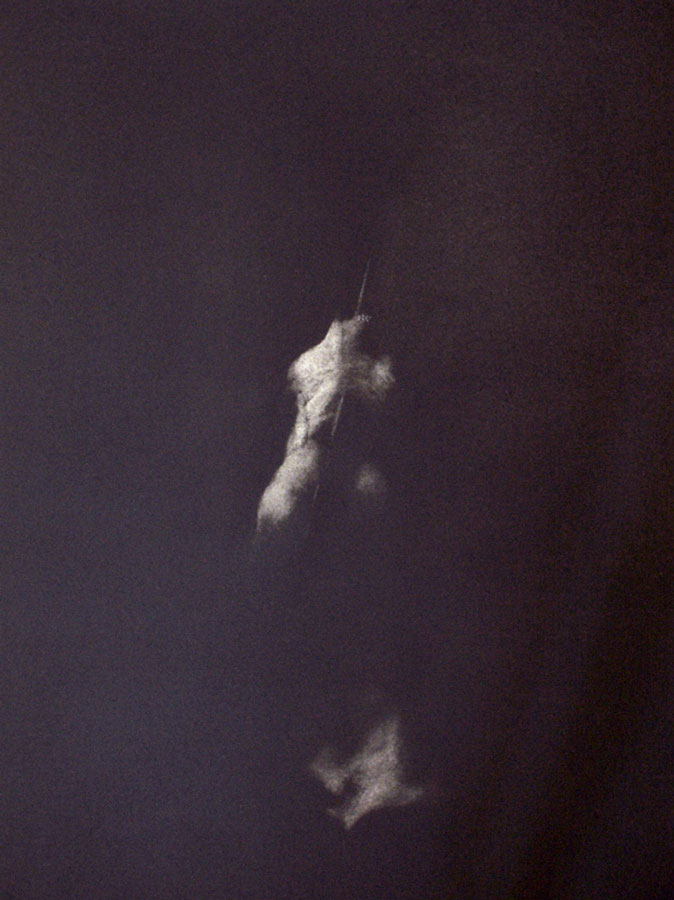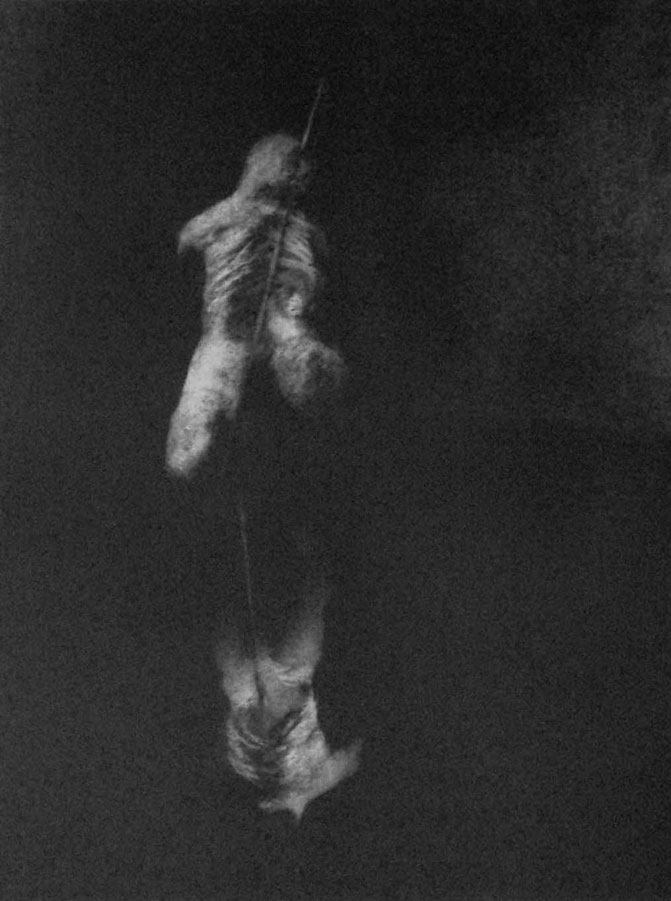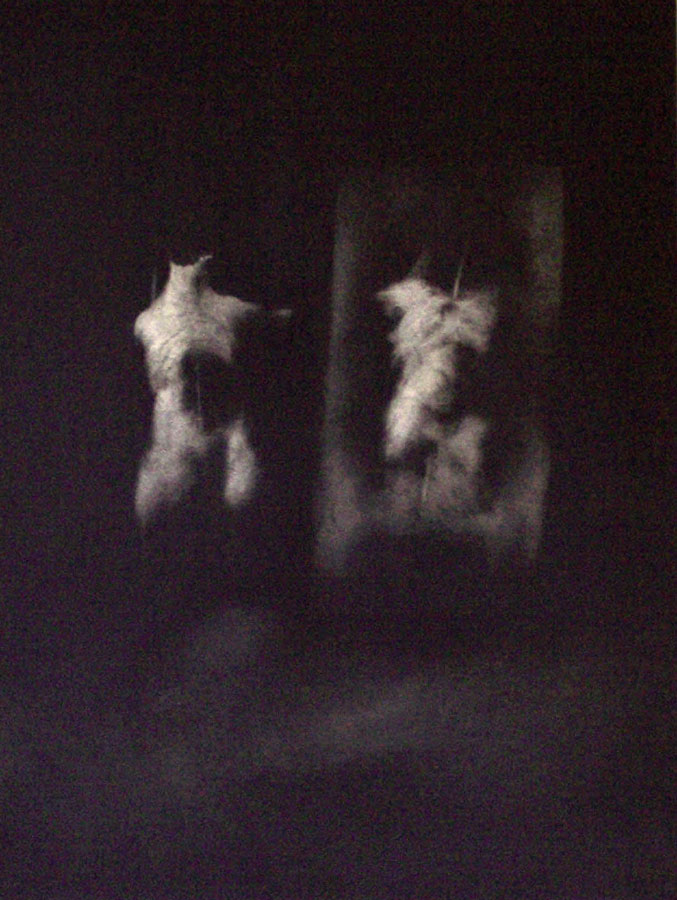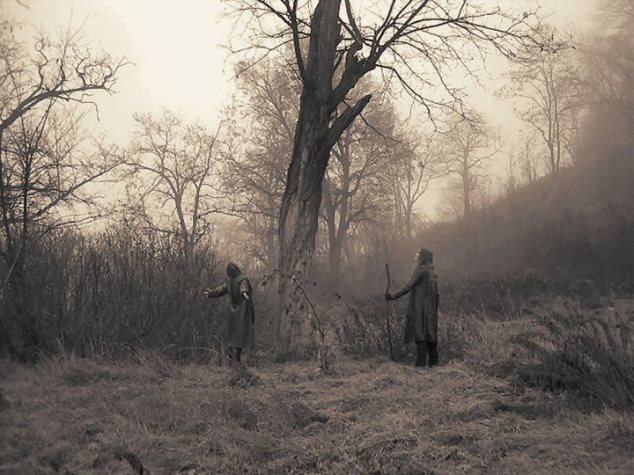12.29.2007
12.22.2007
Black smoker


"A hydrothermal vent is a geyser on the seafloor. It continuously spews super-hot, mineral-rich water that helps support a diverse community of organisms. Although most of the deep sea is sparsely populated, vent sites teem with a fascinating array of life. Tubeworms and huge clams are the most distinctive inhabitants of Pacific Ocean vent sites, while eyeless shrimp are found only at vents in the Atlantic Ocean. The first hydrothermal vent was discovered in 1977. They are known to exist in the Pacific and Atlantic oceans. Most are found at an average depth of about 7,000 feet (2,100 meters) in areas of seafloor spreading along the Mid-Ocean Ridge System — the underwater mountain chain that snakes its way around the globe. How do hydrothermal vents form? In some areas along the Mid-Ocean Ridge, the gigantic plates that form the Earth's crust are moving apart, creating cracks and crevices in the ocean floor. Seawater seeps into these openings and is heated by the molten rock, or magma, that lies beneath the Earth's crust. As the water is heated, it rises and seeks a path back out into the ocean through an opening in the seafloor.As the vent water bursts out into the ocean, its temperature may be as high as 750°F (400°C). Yet this water does not boil because it is under so much pressure from the tremendous weight of the ocean above. When the pressure on a liquid is increased, its boiling point goes up." -craig cary
12.19.2007
12.16.2007
12.15.2007
12.02.2007
11.29.2007
Belo Platno (Serbia/Macedonia)
Theory
The music of Belo Platno (White Linen) can be found in Byzantine church music, which most of the members of the group are interested in, both present members and former ones. Byzantine church music has been preserved in religious services in certain parts of the Eastern Orthodox world (Greece, Mount of Athos, Near East); services to God used to be held in that manner in most Balkan countries as well.
Music of Belo platno
The main characteristics of the music of Belo Platno are the Balkan modal style, striking female voices and the playing of traditional instruments. The modal style consists of singing and playing according to modes without chordal accompaniment, which is associated with the major-minor scale system. Of musical means, there are rhythm, melody and harmony, which follows the modal structure of the melody. The musical arrangements for group performances are based on fields and other audio recordings. The songs are sung in local Serbian dialects.
History
The present state boundaries on the Balkans are but a new historical circumstance. Most of the songs and songs for ring-dances performed by the group Belo Platno come from the region of the present-day Kosovo and Metohia, Southern and Southeastern part of Serbia and Macedonia (Pirin, Aegean and FYR of Macedonia). In the past there were strong ties between these, now torn apart, regions. The common features of the music tradition from this part of the world are the sound and style unique to this geographical region. It is the folklore of the Slavic peoples today divided into two ethic corps – Serbian and Macedonian. Striving towards freedom and culture, Serbia turned to Western Europe in the 19th century, and that model was then, during the same century, followed by other Balkan countries as well. Local musicians, educated in European centres for the first time, brought to Serbia an aesthetic and musical system so far unknown here. The modal structure was abandoned and the use of the harmonized (major-minor) system began, and the new music stile brought new instruments (or the style was changed with the instruments) – brass wind instruments, the guitar, the accordion, the piano and others. The result of such a symbiosis was the music that preserved authenticity only in form, but was in essence different from authentic folk music. The opportunity to develop a national school of music, based on Balkan, Slavic and Oriental culture, as our music tradition had been for centuries, was not taken.

http://beloplatno.rastko.ne
11.28.2007
Metin Kemal Kahraman (Turkey)

Metin Kahraman and Kemal Kahraman - two brothers who compose music in Zazaki, Kirmanci and Turkish. Ex-members of "Grup Yorum." http://mkkahraman.org
11.20.2007
Teargas & Plateglass (Unknown)
"by any measure, we live in an extraordinary and extreme time. language can no longer describe the world in which we live. with antique and old formulas, we continue to describe a world that is no longer present. in this loss of language, the word gives way to the image as the 'language' of exchange, in which critical thought disappears to a diabolic regime of conformity--the hyper-real, the omnipresent image. language, real place gives way to numerical code, the real virtual; metaphor to metamorphosis; body to disembodiment; natural to supernatural; many to one. mystery disappears, replaced by the illusion of certainty in technological perfection. technology acceleration do not affect our way of living--they are our new and comprehensive host of life, the environment of living itself. it is not the effect of technology on the environment, culture, economy, religion, etc., but rather that all these categories exist in technology. in this sense technology is new nature. the living environment, old nature, is replaced by a manufactured milieu, an engineered host--synthetic nature. in a real sense, we are off planet, dwelling on a lunar surface of stone, cement, asphalt, glass, steel and plastics, engulfed in the atmosphere of electromagnetic vibrations--the soothing lullaby of the machine."
11.11.2007
Nebelung (Germany)
"Nebelung is the ancient german name for november, the month of melancholy and herald of forthcoming winter. It is at this time of the year – when the last leaves have fallen and the land lies bare and bleak –, when man has to let go his weapons and confess his weakness before the omnipotence of nature. It is the time of coming home, embracing the beloved ones and drawing nearer to the fire. For those, who wander lonely through the nights, it is the time of introspectiveness, sorrow and despair. With their music, Nebelung capture these feelings, mirroring in autumn rain and winter nights."
Wilfrid Gibson
In the forest
Unflinching I have borne the brunt of spears-
Yet, under these dark boughs that writhe and twist,
My heart is a wren's heart when she hears
The litch-owl called through the evening mist,
And falters cowed, a thing of fluttering fears,
Before some shadow-plumed antagonist.
Quaking I ride, yet know not what I dread:
Naught stirs the boding silence but the sound
Of beechmast crackling 'neath my horse's tread,
Or some last leaf that flutters to the ground;
And long it seems, since, roofless and blood-red,
The sun is seas of night-black boughs was drowned.
Unflinching I have borne the brunt of spears-
Yet, under these dark boughs that writhe and twist,
My heart is a wren's heart when she hears
The litch-owl called through the evening mist,
And falters cowed, a thing of fluttering fears,
Before some shadow-plumed antagonist.
Quaking I ride, yet know not what I dread:
Naught stirs the boding silence but the sound
Of beechmast crackling 'neath my horse's tread,
Or some last leaf that flutters to the ground;
And long it seems, since, roofless and blood-red,
The sun is seas of night-black boughs was drowned.
11.10.2007
John Keats
Ode to Nightingale
My heart aches, and a drowsy numbness pains
My sense, as though of hemlock I had drunk,
Or emptied some dull opiate to the drains
One minute past, and Lethe-wards had sunk:
'Tis not through envy of thy happy lot,
But being too happy in thine happiness,
That thou, light-wingèd Dryad of the trees,
In some melodious plot
Of beechen green, and shadows numberless,
Singest of summer in full-throated ease.
O for a draught of vintage! that hath been
Cool'd a long age in the deep-delvèd earth,
Tasting of Flora and the country-green,
Dance, and Provençal song, and sunburnt mirth!
O for a beaker full of the warm South!
Full of the true, the blushful Hippocrene,
With beaded bubbles winking at the brim,
And purple-stainèd mouth;
That I might drink, and leave the world unseen,
And with thee fade away into the forest dim:
Fade far away, dissolve, and quite forget
What thou among the leaves hast never known,
The weariness, the fever, and the fret
Here, where men sit and hear each other groan;
Where palsy shakes a few, sad, last grey hairs,
Where youth grows pale, and spectre-thin, and dies;
Where but to think is to be full of sorrow
And leaden-eyed despairs;
Where beauty cannot keep her lustrous eyes,
Or new Love pine at them beyond to-morrow.
Away! away! for I will fly to thee,
Not charioted by Bacchus and his pards,
But on the viewless wings of Poesy,
Though the dull brain perplexes and retards:
Already with thee! tender is the night,
And haply the Queen-Moon is on her throne,
Cluster'd around by all her starry Fays
But here there is no light,
Save what from heaven is with the breezes blown
Through verdurous glooms and winding mossy ways.
I cannot see what flowers are at my feet,
Nor what soft incense hangs upon the boughs,
But, in embalmèd darkness, guess each sweet
Wherewith the seasonable month endows
The grass, the thicket, and the fruit-tree wild;
White hawthorn, and the pastoral eglantine;
Fast-fading violets cover'd up in leaves;
And mid-May's eldest child,
The coming musk-rose, full of dewy wine,
The murmurous haunt of flies on summer eves.
Darkling I listen; and, for many a time
I have been half in love with easeful Death,
Call'd him soft names in many a musèd rhyme,
To take into the air my quiet breath;
Now more than ever seems it rich to die,
To cease upon the midnight with no pain,
While thou art pouring forth thy soul abroad
In such an ecstasy!
Still wouldst thou sing, and I have ears in vain—
To thy high requiem become a sod.
Thou wast not born for death, immortal Bird!
No hungry generations tread thee down;
The voice I hear this passing night was heard
In ancient days by emperor and clown:
Perhaps the self-same song that found a path
Through the sad heart of Ruth, when, sick for home,
She stood in tears amid the alien corn;
The same that ofttimes hath
Charm'd magic casements, opening on the foam
Of perilous seas, in faery lands forlorn.
Forlorn! the very word is like a bell
To toll me back from thee to my sole self!
Adieu! the fancy cannot cheat so well
As she is famed to do, deceiving elf.
Adieu! adieu! thy plaintive anthem fades
Past the near meadows, over the still stream,
Up the hill-side; and now 'tis buried deep
In the next valley-glades:
Was it a vision, or a waking dream?
Fled is that music:—do I wake or sleep?
My heart aches, and a drowsy numbness pains
My sense, as though of hemlock I had drunk,
Or emptied some dull opiate to the drains
One minute past, and Lethe-wards had sunk:
'Tis not through envy of thy happy lot,
But being too happy in thine happiness,
That thou, light-wingèd Dryad of the trees,
In some melodious plot
Of beechen green, and shadows numberless,
Singest of summer in full-throated ease.
O for a draught of vintage! that hath been
Cool'd a long age in the deep-delvèd earth,
Tasting of Flora and the country-green,
Dance, and Provençal song, and sunburnt mirth!
O for a beaker full of the warm South!
Full of the true, the blushful Hippocrene,
With beaded bubbles winking at the brim,
And purple-stainèd mouth;
That I might drink, and leave the world unseen,
And with thee fade away into the forest dim:
Fade far away, dissolve, and quite forget
What thou among the leaves hast never known,
The weariness, the fever, and the fret
Here, where men sit and hear each other groan;
Where palsy shakes a few, sad, last grey hairs,
Where youth grows pale, and spectre-thin, and dies;
Where but to think is to be full of sorrow
And leaden-eyed despairs;
Where beauty cannot keep her lustrous eyes,
Or new Love pine at them beyond to-morrow.
Away! away! for I will fly to thee,
Not charioted by Bacchus and his pards,
But on the viewless wings of Poesy,
Though the dull brain perplexes and retards:
Already with thee! tender is the night,
And haply the Queen-Moon is on her throne,
Cluster'd around by all her starry Fays
But here there is no light,
Save what from heaven is with the breezes blown
Through verdurous glooms and winding mossy ways.
I cannot see what flowers are at my feet,
Nor what soft incense hangs upon the boughs,
But, in embalmèd darkness, guess each sweet
Wherewith the seasonable month endows
The grass, the thicket, and the fruit-tree wild;
White hawthorn, and the pastoral eglantine;
Fast-fading violets cover'd up in leaves;
And mid-May's eldest child,
The coming musk-rose, full of dewy wine,
The murmurous haunt of flies on summer eves.
Darkling I listen; and, for many a time
I have been half in love with easeful Death,
Call'd him soft names in many a musèd rhyme,
To take into the air my quiet breath;
Now more than ever seems it rich to die,
To cease upon the midnight with no pain,
While thou art pouring forth thy soul abroad
In such an ecstasy!
Still wouldst thou sing, and I have ears in vain—
To thy high requiem become a sod.
Thou wast not born for death, immortal Bird!
No hungry generations tread thee down;
The voice I hear this passing night was heard
In ancient days by emperor and clown:
Perhaps the self-same song that found a path
Through the sad heart of Ruth, when, sick for home,
She stood in tears amid the alien corn;
The same that ofttimes hath
Charm'd magic casements, opening on the foam
Of perilous seas, in faery lands forlorn.
Forlorn! the very word is like a bell
To toll me back from thee to my sole self!
Adieu! the fancy cannot cheat so well
As she is famed to do, deceiving elf.
Adieu! adieu! thy plaintive anthem fades
Past the near meadows, over the still stream,
Up the hill-side; and now 'tis buried deep
In the next valley-glades:
Was it a vision, or a waking dream?
Fled is that music:—do I wake or sleep?
11.05.2007
11.04.2007
Bethlehem (Germany)
Dictius Te Necare
Full-length, Red Stream
April 1996
Landfermann : Vocals
Matton : Guitars
Bartsch : Bass
Steinhoff : Drums
Tracklist:
1. Schatten Aus Der Alexander Welt 04:26
2. Die Anarchische Befreiung Der Augenzeugenreligion 09:11
3. Aphel - Die Schwarze Schlange 06:40
4. Verheißung - Du Krone Des Todeskultes 05:15
5. Verschleierte Irreligiosität 05:41
6. Tagebuch Einer Totgeburt 04:29
7. Dorn Meiner Allmacht 08:14
Every song in this album is a masterpiece.
11.03.2007
10.28.2007
9.16.2007
9.15.2007
9.13.2007
8.23.2007
Subscribe to:
Posts (Atom)




